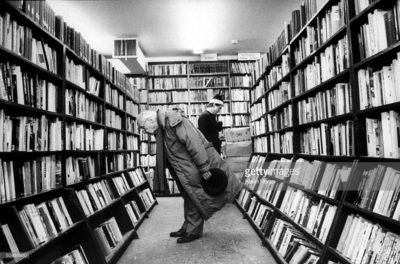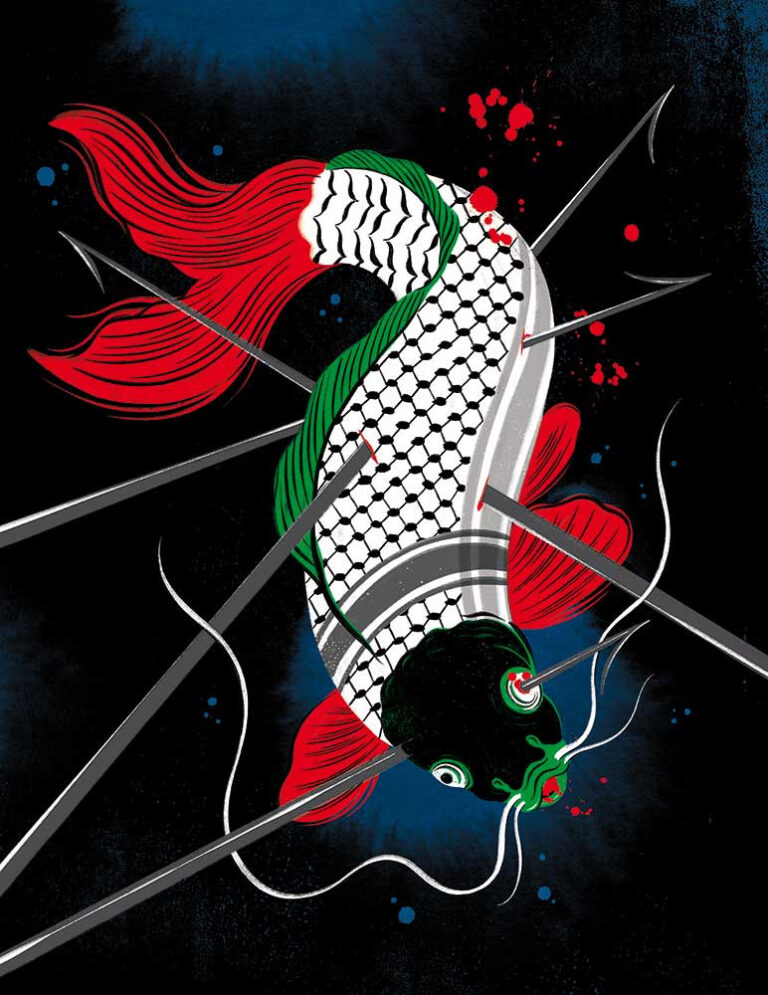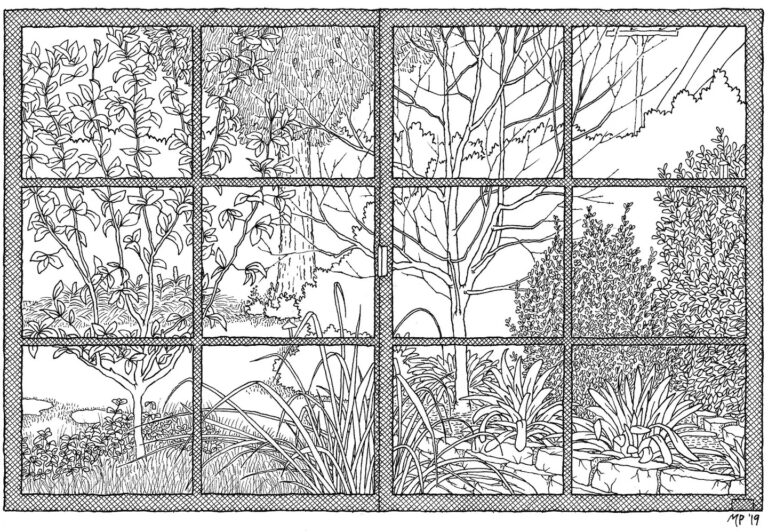Originally published in The Washington Post.
Books by immigrants, foreigners and minorities don’t diminish the ‘classic’ curriculum. They enhance it.

In 1992, as a first-year PhD student at Berkeley, I told the English department chairman, a famous Americanist, that I wanted to write a dissertation on Vietnamese and Vietnamese American literature. “You can’t do that,” he said, fretting over my ambition to teach in a university English department. “You won’t get a job.” Since even my Marxist mentor agreed with the chair, I took the safer route and wrote a dissertation on Asian American literature, a subject in which some people had gotten tenure-track professorial positions.
Still, this was not an easy path, as a scholar of Chicano literature told me with a note of anger in his voice: “We have to read their literature, but they don’t have to read ours.” He meant that we, in the minority, would always have to know the minds of the majority, a favor the majority knew it did not have to return. Knowledge of this kind meant survival for the minority. Ignorance of this kind was an expression of privilege for the majority.
I’ve been thinking of those years again because, somehow, the decades-long war over what to include in the literary canon rages on. The latest front is at Barnard College in New York City, where some English majors want greater diversity in their curriculum. “After years of experience, I would say ‘too bad’ ” to those students,
Anne Lake Prescott, a senior scholar and professor emerita of English, told the university newspaper. “In order to understand later literature you need to have read some Shakespeare, Milton, Tennyson. This is good background for an English major. The brutal part of my mind says, ‘If you don’t like it, don’t major in English.’ Many professors would feel that if you don’t give the basics of the British literature supplemented by American literature, you simply can’t understand some of the moderns.”
This “brutal” thinking is ever more vocal in American culture. The rise of anti-immigrant and anti-refugee xenophobia on the right finds a parallel in attacks against “identity politics” on the left. The right blames newcomers, foreigners and minorities for the cultural and economic decline of the country. The left blames the same groups for insisting too strongly on their identities, which allegedly alienates some white people, distracts from the need to focus on inequality and, in academia, threatens the canon. People like me and the Barnard students who want to read different kinds of literature are the barbarians at the gate, the supposed purveyors of these identity politics.
But these complaints ignore the most dangerous kind of identity politics: white identity politics, which has always been with us. Except it was never called “white,” since American politics has implicitly been white politics throughout most of the nation’s history. What has changed is that the barbarians’ increased demands have made whiteness more visible, most especially to white people themselves. No wonder this manifests, partly, as a dispute about the canon.I came of age during the so-called culture wars of the late 1980s and 1990s, when university debates over what constituted American and Western culture transfixed the nation. At the center of the fight was the canon of Western literature, a parade of European men from Homer to Joyce. Reformers did not dispute that a Western canon needed to exist, but they demanded more space for works by women, people of color, the working class, the queer and the non-white. (The revolutionaries wanted to abolish the canon and the idea of “great books” altogether.) In contrast, scholars E.D. Hirsch and Allan Bloom argued that if the core of the great books was not synonymous with the Western canon, then the values of the West — and the cohesiveness of America itself — would erode. By the late ’90s, the wars seemed settled, with “multiculturalism” appearing to have triumphed, even if it manifested only as a “diversity requirement” that students read Chinua Achebe and the Koran alongside the “classics.”

But as is the case with many wars, there has been a long aftermath, and maybe even a renewal.
I arrived at the University of California at Berkeley in 1990, already suspecting that I was one of the barbarians threatening Western culture. I had gone to an elite, mostly white high school in San Jose, where I was one of the few students of Asian descent. We knew we were different. Every day at lunch, we gathered in a corner of the campus and called ourselves “the Asian invasion.” I was primed to become what I did at Berkeley — an Asian American. The term was coined in 1968 by radical Berkeley students. Before then, we were “Orientals” at best, the “yellow peril” at worst, excluded from the Western canon except when Western cannons were aimed at us. (To people to whom all Asians looked alike, it didn’t matter that Asian Americans were not the same as Asians: We were all foreigners who didn’t belong.)
I am a descendant of Caliban, the character who learned the master’s language, including how to curse in it. Still, my love for English, and the Western canon, runs deep. In college, as an English major, I read many of the Greek classics, Chaucer, Shakespeare, a good number of the Romantics and the Victorians, plus a considerable amount of American literature. I never thought of becoming a scholar of English. (How could I go home to my Vietnamese refugee parents, who worked 12- to 14-hour days in their grocery store, and say that I wanted to study Jane Austen or Lord Byron?) But I could enjoy the study of literature until I had to go to law school and begin a life of quiet desperation.
Then I became an ethnic studies major, too. I discovered Asian American literature, whose origins date to the late 1800s. I also found African American literature, from the slave narratives onward. And then there was Chicano literature, which helped me understand better what it meant to have grown up in San Jose, with a best friend named Jesús; Native American literature, which reminds us that the American Dream is born from genocide; postcolonial literature, which made me realize that I was postcolonial as well, having been born in Vietnam, colonized by the French; and feminist literature, which set me on the path I am still on today, attempting to understand just how deeply patriarchy and misogyny have shaped me.

[Characters in children’s books are almost always white, and it’s a big problem]Only after exposure to all these literatures — none of them “canonical,” even if they included some books that were “great” to me — did I think I could go to graduate school and pursue a doctorate in English, where I attempted to honor my parents in my own way, by writing on Vietnamese and Vietnamese American literature. The department chair put an end to that. Insufficient fealty to the Western canon (which my proposed subject clearly did not include) imperiled my job prospects, because even then, identity politics, as it would soon become known, was a threat to the curriculum at universities across the country.The birth of identity politics all those years ago has drawn a backlash with an explicit emphasis on white identity politics. In Donald Drumpf, white identity politics has found a sympathetic president. White identity politics is armed with an AR-15 and a sense of grievance born from understanding, for the first time, what W.E.B. Du Bois said of the African American experience at the turn of the 20th century: “It is a peculiar sensation, this double-consciousness, this sense of always looking at one’s self through the eyes of others, of measuring one’s soul by the tape of a world that looks on in amused contempt and pity. One ever feels his two-ness, — an American, a Negro.

For people of color, double consciousness is second nature, something we experience every day, something I am reminded of whenever I am the only nonwhite person in an academic or literary setting, which happens often. But too many white people are not used to two-ness, to seeing themselves as both an American (or a European) and a white person. This awareness of one’s own privilege as part of the majority is completely absent from the traditional great books curriculum, and its themes would be unrecognizable to centuries of authors who emerged from the majority in their homelands.
Some white people accept their visibility and make room for other voices; they include the late Emory Elliott, an American-literature scholar whose edited volume “The Columbia History of the American Novel” covered “classic” authors as well as submerged, overlooked and forgotten ones who make up the vast complexity of American literature (and culture). But this kind of inclusion makes other whites feel themselves to be under attack — and under threat of erasure. It is these people to whom Drumpf spoke when he said, in his inaugural address, “You will never be ignored again.” People who believe they are being forgotten in favor of minorities are not just English professors who say, “If you don’t like it, don’t major in English.” They are also people who say, “Love America or leave it.” Their version of defending the canon and expelling troublesome writers expresses itself through building a border wall and deporting people.But it’s too late to get rid of all of us. We are here because white people were there, invading — sorry, civilizing — our countries of origin. Americans descended from Vietnamese refugees, undocumented Nicaraguan immigrants and African slaves cannot unlearn English. In my case, I love English and will not leave it, even if some people use it to say, “Go back to where you came from.” (They can’t say “Speak English,” since I teach it.) I write books hoping that people like me will one day be part of the canon, even if its defenders would never welcome us. We are not destroying anything by demanding to be part of the canon or the curriculum or the country. Those building walls are the ones allowing their fear to destroy what they wish to preserve.

Here’s what the brutal part of my mind says. The gunners of the Western canon have always declared that there is no requirement to read the Other, since there is no equivalence. We are just the natives, English our second language. The gunners would agree with Saul Bellow when he asked: “Who is the Tolstoy of the Zulus? The Proust of the Papuans? I’d be glad to read him.” Never mind that Bellow presents a false choice between culture and chaos, or that he confuses the matter by gesturing at oral cultures rather than literary ones. (And would it be so perilous to learn things from radically different cultures that do not value the same things we do?) Why don’t we read Murasaki Shikibu’s “The Tale of Genji,” Cao Xueqin’s “The Dream of the Red Chamber” or Nguyen Du’s “The Tale of Kieu,” all of which predate Tolstoy and Proust?
But Bellow also misses the point, which is that the cultures that produced the canonical greats also produced mass slavery and colonization that killed millions. Both Shakespeare and slaughter are part of the Enlightenment. Can we recognize both these faces of modernity? Not if we read only Shakespeare.We must read Shakespeare and authors who are women, Arab, Muslim, queer. Most of the world is neither white nor European, and the United States may be a majority-minority country by mid-century. White people will gain more by embracing this reality rather than fighting it. As for literature, the mind-set that turns the canon into a bunker in order to defend one dialect of English is the same mind-set that closes borders, enacts tariffs and declares trade wars to protect its precious commodities and its besieged whiteness. But literature, like the economy, withers when it closes itself off from the world. The world is coming anyway. It demands that we know ourselves and the Other.



